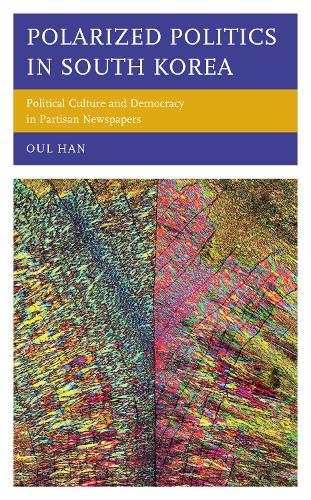
Polarized Politics in South Korea: Political Culture and Democracy in Partisan Newspapers
(Hardback)
Publishing Details
Polarized Politics in South Korea: Political Culture and Democracy in Partisan Newspapers
By (Author) Oul Han
Bloomsbury Publishing PLC
Lexington Books
21st April 2021
United States
Classifications
Professional and Scholarly
Non Fiction
Political structures / systems: democracy
306.2095195
Physical Properties
Hardback
186
Width 163mm, Height 228mm, Spine 17mm
476g
Description
South Korea is one of the most successful cases of democratization and rapid economic development in the world. It shares one troubling problem with many other industrialized and democratic countries of the recent years: the increase of extreme polarization in the language and emotions of politics and society. However, Korea experienced this problem earlier than most of these countries. The turbulent democratization history created parties that have weak ideologies but wield deeply effective stories and strategies. The combination of these two traits creates a downwards spiral where the performance of moral superiority becomes the sharpest weapon, at the cost of the voters and the institutional role of the party system. The author points out that we need a standard for viewing this growing problem and argues that the traits of ideological polarization in language are not well understood. Using partisan newspaper text data from 1990 to 2014 and quantitative text analysis, this book collects the most typical meanings used by parties and partisans, analyzing why they exist and for which purpose. In the age of digital data and possibly restricted mobility, this book is a proposal for what the author calls Computational Area Studies and Distant Fieldwork.
Reviews
Polarized Politics in South Korea: Political Culture and Democracy in Partisan Newspapers greatly enriches our understanding of contemporary Korean politics. Advancing the method of 'quantitative text analysis, ' the author shows how political ideas polarize the political discourse in modern Korea. The study, which makes use of big data, is original in methodological, empirical, and theoretical respects and will surely become a milestone for readers who are interested in Korean politics.
--Sabine Kropp, Freie Universitt BerlinThis work persuasively demonstrates, using advanced methods of statistical text analysis, that the language of political parties and politicians--their topics, symbols, frames and rhetoric--have as much importance as formal election pledges or policy programs in contemporary South Korean politics. Not only researchers of Korean politics, but also readers interested in political discourse will see an example of original and interesting attempts in this book.
--Jin-Wook Shin, Chung-Ang UniversityAuthor Bio
Oul Han is a postdoctoral researcher formerly associated with the Institute for Web Technologies at the University of Koblenz, the computational social science department at the Leibniz-Institute for the Social Sciences (GESIS), and the Korean studies department at the cole des Hautes tudes en Sciences Sociales (EHESS).
